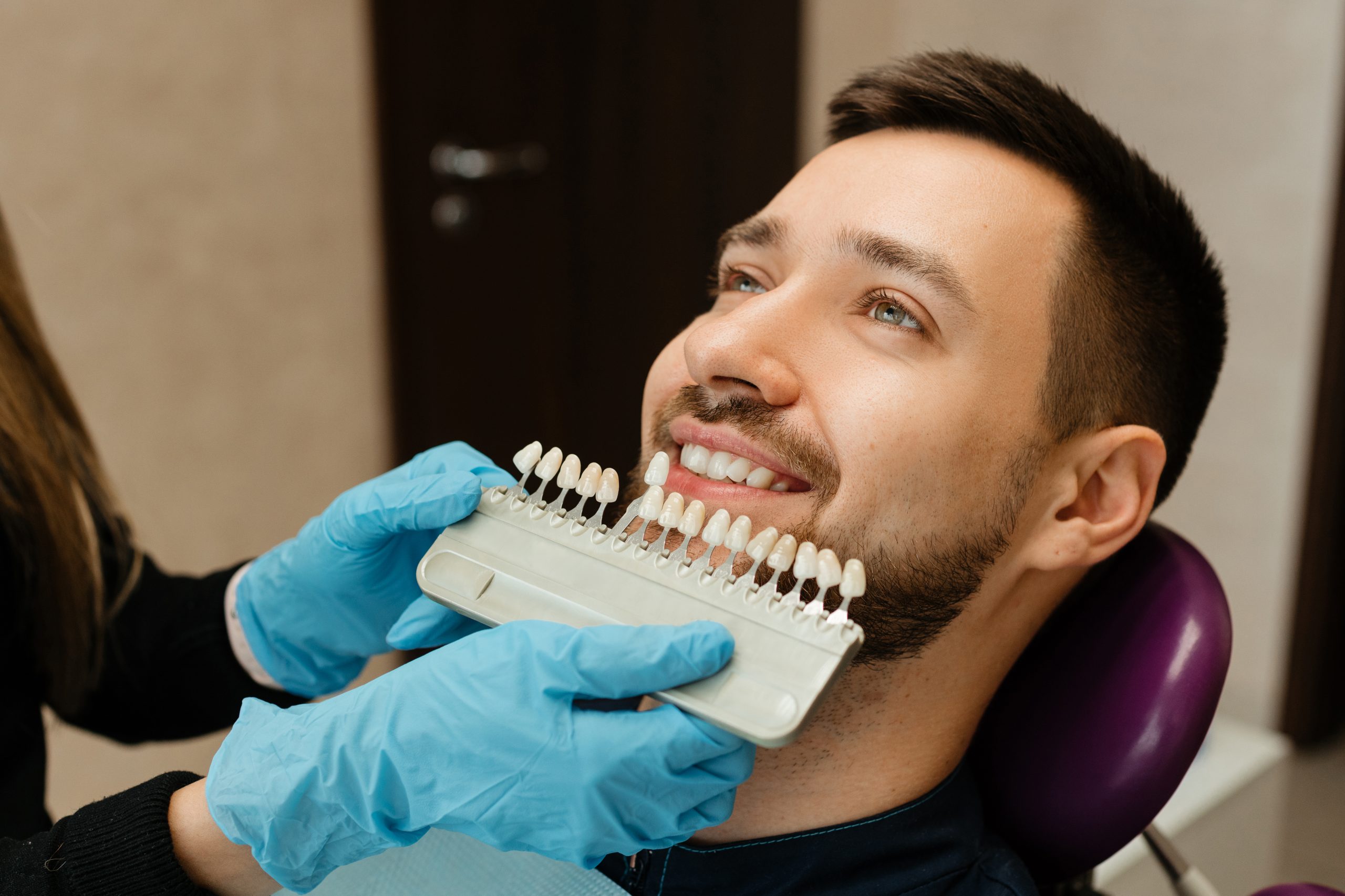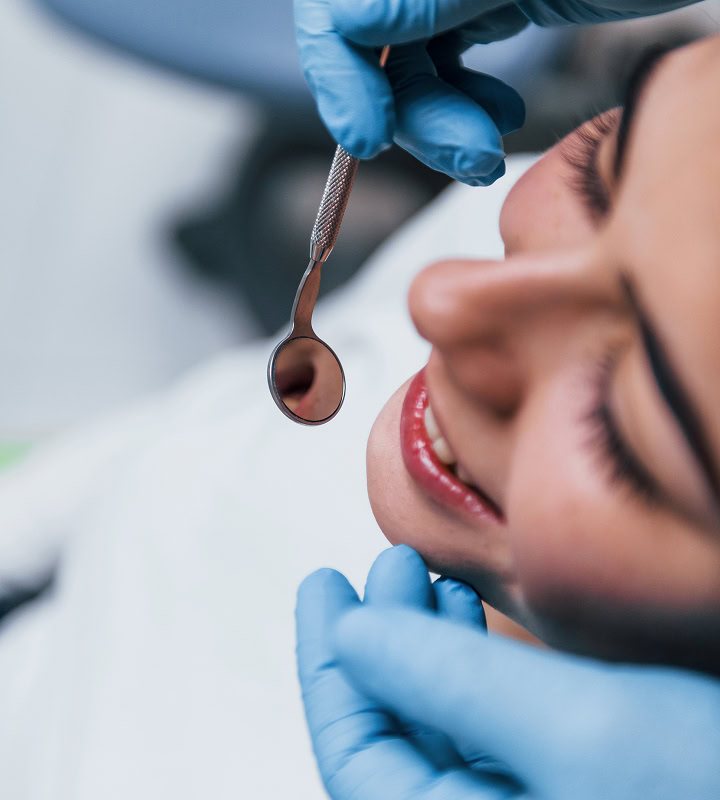
Restore Your Smile and Protect Your Teeth with Dental Crowns in Tweed Heads
Durable dental crowns in Tweed Heads can restore damaged teeth and enhance your smile. They offer long-lasting protection and natural-looking results, improving your dental health.
Why Choose Tweed Family Dental for Your Oral Health Care
Finding the right dentist is essential for your family’s dental health and comfort. Choose Tweed Family Dental for trusted, high-quality care tailored to every patient’s needs.
Gentle, Family-Friendly Care
Tweed Family Dental offers compassionate, patient-focused care in a warm, family-friendly environment, providing comfortable and quality care for patients of all ages.
QIP Accreditation
As a QIP-accredited clinic, Tweed Family Dental meets nationally recognised standards of safety, quality, and patient care, continuously providing exceptional service.
Flexible Payment Options
Tweed Family Dental provides convenient and flexible payment options to make high-quality dental care accessible and affordable for every patient.

Our High-Quality Dental Crowns Improve Functionality and Aesthetics of Teeth
Cracked, worn, or severely decayed teeth can cause discomfort, make eating difficult, and affect your confidence. If ignored, these issues may worsen, leading to more extensive damage. Dental crowns are custom-made caps that cover and protect weakened teeth, restoring strength and appearance. At Tweed Family Dental, our high-quality dental crowns provide durable, natural-looking results to improve both functionality and aesthetics.
Who Is the Right Candidate for a Dental Crown Procedure?
A dental crown is ideal for patients with specific dental issues that affect the appearance or functionality of their teeth. Below are the characteristics that indicate if you’re a suitable candidate for dental crowns:
-
Patients with weakened or cracked teeth needing added protection can benefit from dental crowns.
-
Individuals with large fillings or extensive decay may require crowns to protect and strengthen their teeth. Crowns are a durable option that restores the tooth’s structure and prevents further damage.
-
Those seeking to improve the appearance of discoloured or misshapen teeth are suitable candidates.
-
Dental crowns are often recommended after root canal treatments. They protect and strengthen the addressed tooth for long-term durability.


Dental Crown Benefits for Your Smile and Oral Health
Dental crowns offer a reliable way to restore and protect damaged teeth while enhancing your smile’s appearance and functionality. Below are the key benefits of choosing dental crowns for long-lasting oral health improvements.
-
Dental crowns strengthen weakened teeth by providing additional support. They help protect teeth from further damage or fractures, providing long-term durability.
-
They bring back the natural shape of teeth, helping them function properly. Crowns also improve the appearance of your teeth, creating a seamless and attractive smile.
-
Crowns enhance your ability to chew properly and speak clearly. They help make daily activities easier and more comfortable.
-
They protect teeth after root canal treatments or large fillings, providing long-term durability.
Take the First Step Towards a Healthier Smile; Contact Us

How We Can Help Restore Your Smile With Dental Crowns
Dental crowns effectively address various dental concerns, such as damaged, decayed, or weakened teeth, helping restore both function and appearance.
Improve Your Smile Confidence
Dental crowns strengthen weakened teeth and enhance their appearance, giving you a smile you’ll feel proud to show off.
Learn MoreTeeth Whitening Options
Dental crowns cover discoloured teeth, providing a durable, natural-looking treatment for a brighter, whiter smile.
Learn MoreConsidering Teeth Straightening
Dental crowns can improve minor misalignments by reshaping teeth, improving alignment and appearance for a straighter smile.
Learn MoreFlexible and Affordable Payment Options for Stress-Free Dental Care
We offer a flexible, budget-friendly payment structure to make quality dental care accessible. Our dental clinic partners with major health funds to support your needs.
Child Dental Benefits Schedule
Eligible children can receive up to $1,052 over two years for essential dental treatments, which promote healthy smiles and oral health.
Dental Services for DVA Card Holders
DVA cardholders can access comprehensive dental services that provide high-quality care, ongoing support, and better outcomes for their oral health needs.
Bupa Members First Preferred Provider
As a preferred provider, eligible Bupa members enjoy enhanced benefits, reduced treatment expenses, and access to reliable dental care for eligible members.
Nib First Choice Preferred Provider
Nib First Choice members gain access to exceptional dental care, reduced treatment costs, and exclusive benefits for a seamless and stress-free experience.
CBHS Choice Network Preferred Provider
The CBHS Choice Network offers members access to high-quality dental services, lower treatment costs, and additional benefits designed for member convenience.
MediPay
MediPay offers quick, flexible loans, allowing patients to conveniently manage their dental costs and access quality dental care whenever needed.
Zip
Zip allows patients to break dental costs into manageable instalments, making essential treatments accessible, affordable, and budget-friendly without financial stress.
Afterpay
Afterpay allows patients to split dental treatment costs into four interest-free payments, providing flexibility, convenience, and accessible options for essential care.
smile.com.au
Save on dental treatment in Tweed Heads with smile.com.au membership—no waiting periods, no caps, and no exclusions, just hassle-free savings on dental care.
Frequently Asked Questions
Find answers about dental crowns, including details on their cost, lifespan, and what to expect before and after the procedure.
Do they shave your teeth down for crowns?
Yes, a small portion of your tooth is carefully reshaped to prepare it for a crown. This process involves removing damaged or weakened areas to achieve a proper fit for the crown. If addressing missing teeth, crowns can be used alongside implants or bridges for effective restoration. The amount removed depends on the crown type and your dental needs.
The reshaping allows the crown to fit securely and look natural alongside your other teeth. Your dentist will prioritise preserving as much of your natural tooth structure as possible. This careful preparation helps create a strong, long-lasting restoration for your smile.
How much of a tooth do you need for a crown?
A tooth needs enough structure to support a crown to function properly. Below is a quick guide:
Dentists need at least half of the natural tooth for a crown to be placed.
If too much of the tooth is missing, a dental post or core buildup may be required.
The remaining tooth structure must be healthy and strong to support the crown effectively.
Your dentist will assess your tooth to determine if it can hold a crown securely.
How long does it take to put on a crown?
The dental crown procedure requires two appointments to complete. Below is a quick breakdown of the timeframe involved:
The first appointment takes around one to two hours for preparation and impressions.
The second appointment, usually two to three weeks later, involves fitting and cementing the crown.
Temporary crowns are provided between appointments to protect the tooth.
The overall process can take two to three weeks, depending on the dental clinic’s schedule and lab processing time.
Is it painful to get a crown?
Getting a dental crown is a comfortable process, as dentists apply local anaesthesia to numb the treatment area. Patients may feel mild pressure during the dental crown procedure, but no sharp pain is experienced. Modern techniques make the process comfortable and minimally invasive.
After the procedure, some patients might experience mild sensitivity or discomfort as their mouths adjust to the new crown. Over-the-counter pain relief is sufficient to manage any post-treatment symptoms. Dentists provide detailed aftercare instructions to promote a smooth recovery and long-lasting results.
Do you need root canal therapy for a crown?
Root canal therapy is not always required before getting a crown. A crown is placed to restore a tooth’s appearance and function. However, if the tooth has extensive decay or infection, a root canal treatment may be necessary.
Root canal therapy involves removing infected tissue to preserve the tooth and prevent additional dental issues from developing. A crown can be placed without a root canal treatment if the tooth’s structure is healthy and stable. Your dentist will assess your tooth and suggest the most appropriate treatment option.
How long does a dental crown last?
A dental crown usually lasts between 5 and 10 years, depending on the material used and oral hygiene practices. Proper care, such as regular flossing and brushing, can significantly extend the crown’s lifespan. Regular dental checkups are essential for assessing the condition of the crown and the tooth beneath it.
Factors such as biting habits, teeth grinding, or using teeth to open objects can affect a crown’s longevity. Avoiding these habits and maintaining a healthy diet can help preserve the crown’s durability. Consult your dentist for any issues to maintain the crown’s effectiveness.
How should I care for my dental crown to make it last longer?
Caring for your dental crown requires a consistent oral hygiene routine to maintain its durability. Proper care also allows you to maximise the dental crown benefits. Brush your teeth with fluoride toothpaste, focusing on the crown and surrounding areas. Floss gently around the crown to remove food particles and plaque buildup.
Avoid chewing hard foods or using your teeth to open objects, as this can damage the crown. Regular dental checkups help your dentist evaluate the crown’s condition and address potential problems at an early stage. If you grind your teeth, wearing a nightguard can protect your crown and natural teeth.
How much does a dental crown cost?
The cost of dental crowns depends on the type chosen and individual treatment needs. Below is an estimated cost range for common types of dental crowns:
Ceramic crowns or porcelain crowns cost between $1,700 and $1,900. They are popular for front teeth due to their natural appearance and stain resistance.
Porcelain-fused-to-metal crowns cost between $1800 and $2450. These crowns combine a metal base with a porcelain overlay for strength and a natural appearance.
Full metal crowns cost between $1,830 and $3,500. Made entirely of metal, these crowns are highly durable and ideal for back teeth, offering longevity.
The dental clinic’s location can affect the price, with metropolitan areas often charging more than regional locations.
A dentist’s experience and experience can influence the cost, with skilled professionals often charging higher fees for their services.
If you’re looking for high-quality dental crowns in Tweed Heads, contact us now!
Do health funds cover the cost of dental crowns?
Health funds may provide benefits for dental crowns, depending on your level of cover and policy details. Most health funds provide benefits for major dental treatments, including crowns, under higher-tier policies. Reviewing your health fund policy is essential to understand your cover and any applicable limits. It also helps determine how much of the cost of dental crowns will be reimbursed.
Typically, health funds cover a percentage of the cost, leaving you to pay the remaining balance as an out-of-pocket expense. The exact amount reimbursed varies based on your policy, annual limits, and waiting periods. Contacting your health fund provides clarity about your dental crown benefits and helps you manage the cost of dental crowns.
Are dental crowns worth the money?
Dental crowns are a worthwhile investment because they restore damaged teeth and improve functionality. They also help protect weakened teeth from further damage. Dental crowns also enhance the appearance of your smile by blending seamlessly with natural teeth. Their durability provides long-term oral health benefits, making them cost-effective options.
Can children or teenagers get dental crowns if needed?
Yes, children and teenagers can receive dental crowns when necessary. Dental crown benefits include protecting or restoring damaged teeth effectively. They provide long-lasting support and prevent further dental complications in young patients.
Dentists carefully assess whether a crown is the most suitable option for the child or teenager. In many cases, crowns can preserve baby teeth until they naturally fall out. Preserving these teeth supports healthy oral development and prevents potential alignment issues in the future.
Are there risks or side effects associated with getting a dental crown?
Getting a dental crown is safe. However, like any dental treatment, it may come with certain risks or potential side effects. Below is a breakdown of the possible concerns associated with dental crowns:
- Tooth Sensitivity:
Patients might feel sensitivity to hot or cold temperatures after having a crown placed. Sensitivity is more common if the tooth still contains a living nerve. The sensitivity is short-term and can be alleviated by using desensitising toothpaste.
- Discomfort or Pain:
Some individuals may feel mild discomfort or pressure after the dental crown procedure, particularly if minor adjustments are needed. The sensation usually subsides as the crown settles into place.
- Allergic Reaction:
In rare cases, patients might experience allergies to materials used in crowns, such as metals. Your dentist will discuss material options to minimise this risk.
- Crown Loosening or Detachment:
A crown may become loose over time due to wear or improper bonding. In many cases, the issue can be addressed by reattaching or replacing the crown.
- Infection or Decay:
If the tooth beneath the crown is not thoroughly cleaned, bacteria can accumulate and cause infection or decay. A crown that does not fit snugly may also allow bacteria to enter and affect the underlying tooth.
- Gum Irritation or Inflammation:
Some patients may notice redness in the gums around the crown, particularly in the first few days after placement.
While these risks are minor and uncommon, it’s essential to discuss any concerns with your dentist before the procedure. Regular checkups and good oral hygiene will also help keep your crown effective and problem-free for years.
How common is decay under a crown?
Decay under a dental crown is relatively uncommon but can occur if proper oral hygiene is not maintained. Crowns are designed to protect teeth. However, bacteria can seep through gaps caused by poor fit, damage, or alignment issues like crooked teeth. Regular dental checkups help detect potential issues early, preventing decay from worsening beneath a crown.
Poor oral care, such as inadequate brushing or flossing, increases the risk of decay under a crown. Sugary diets and plaque buildup can allow bacteria to compromise the tooth’s underlying structure. With timely intervention, dentists can address decay and preserve the crown’s integrity.
What happens if my crown becomes loose or damaged over time?
If your crown becomes loose or damaged over time, contact your dentist. A loose or damaged crown can expose the underlying tooth, increasing the risk of decay or infection. Prompt dental care allows the crown to restore the tooth’s function and provide essential protection.
Ignoring a loose or damaged crown may lead to discomfort, sensitivity, or further complications. Your dentist will evaluate the situation and recommend the most suitable option, such as re-cementing or replacing the crown. Regular dental checkups can help identify and address crown issues before they worsen.
How long can you leave a crown off a tooth?
Leaving a crown off a tooth for too long can lead to complications. Without a crown, the tooth becomes vulnerable to damage and decay. It is important to have the crown replaced to protect the tooth.
Delaying crown replacement can cause the tooth to shift, potentially affecting bite alignment. These changes may make placing a new crown more difficult. Seeking professional care helps maintain oral health and avoid future dental issues.
How do you know when your crown needs replacing?
Knowing when your dental crown needs replacing is essential for maintaining your oral health and avoiding potential complications. Below are clear signs that it might be time to replace your crown:
- Visible Wear or Damage:
If you notice chips, cracks, or general wear on the crown, it may no longer provide adequate protection or function.
- Pain or Sensitivity:
Persistent discomfort or sensitivity around the crowned tooth could indicate decay or damage beneath the crown.
- Looseness or Movement:
If your crown feels loose or shifts when you bite or chew, it might need to be replaced or refitted.
- Discolouration or Staining:
While some crowns resist staining, noticeable discolouration could signal age-related wear or exposure to substances that have compromised its appearance.
If you notice any of these signs, schedule an appointment with your dentist. A professional evaluation will help determine the condition of your crown and the necessary steps to address any dental issues.
Join Our Family of Happy Patients; Schedule Your Visit Today!
Experience exceptional care with our trusted dentist in Tweed Heads. Book your appointment today and take the first step towards maintaining a healthier, brighter smile for you and your family.